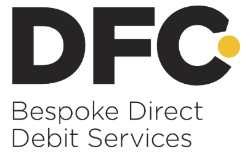For decades, people have avoided fat- and cholesterol-rich items, such as butter, nuts, egg yolks, and full fat dairy, opting instead for low fat substitutes like margarine, egg whites, and fat-free dairy in hopes of bettering their health and losing weight.
This is due to the misconception that eating foods rich in cholesterol and fat may increase your risk of various diseases.
While research has disproven this notion, myths surrounding dietary cholesterol and fat continue to dominate headlines and many healthcare providers continue to recommend very low fat diets to the general public.
This article by Jillian Kubala, MS, RD expels five of the most common myths.
Myth 1. Eating fat leads to weight gain
A common diet myth is that eating high fat foods causes you to gain weight.
While it’s true that eating too much of any macro-nutrient, including fat, makes you gain weight, consuming fat-rich foods as part of a healthy, balanced diet does not lead to weight gain.
On the contrary, consuming fat-rich foods may help you lose weight and keep you satisfied between meals.
Numerous studies have shown that eating high fat foods, including whole eggs, avocados, nuts, and full-fat dairy, may help boost weight loss and feelings of fullness. What’s more, dietary patterns that are very high in fat, including low carb, high fat diets, have been shown to promote weight loss.
Myth 2. Cholesterol-rich foods are unhealthy
Many people assume that cholesterol-rich foods, including whole eggs, shellfish, organ meats, and full-fat dairy, are unhealthy. Yet, that’s not the case. In fact, many high cholesterol foods are chock-full of nutrition.
Myth 3. Saturated fat causes heart disease
Recent research has shown no link between saturated fat intake and heart disease and has demonstrated that certain types of saturated fat may increase heart-protective HDL cholesterol.
Myth 4. Eating fat increases diabetes risk
A 2019 study in 2,139 people found no association between the consumption of animal- and plant-based fat or total fat and the risk of type 2 diabetes. In fact, certain fat-rich foods may help protect against the disease’s development.
Myth 5. Fat-free products are a smart choice
While processed low fat foods on the supermarket shelves might seem like a smart choice, these foods aren’t good for overall health. Unlike naturally fat-free foods, such as most fruits and veggies, processed fat-free foods contain ingredients that can negatively affect your body weight, metabolic health, and more.
Despite having fewer calories than their regular-fat counterparts, fat-free foods are typically much higher in added sugar. Consuming high amounts of added sugar has been associated with the progression of chronic conditions like heart disease, obesity, and diabetes.
What’s more, many fat-free products contain preservatives, artificial food dyes, and other additives that many people prefer to avoid for health reasons. Plus, they’re not as satisfying as foods that contain fat.
Instead of trying to cut calories by choosing highly processed fat-free products, enjoy small amounts of whole, nutritious sources of fats at meals and snacks to promote overall health.






